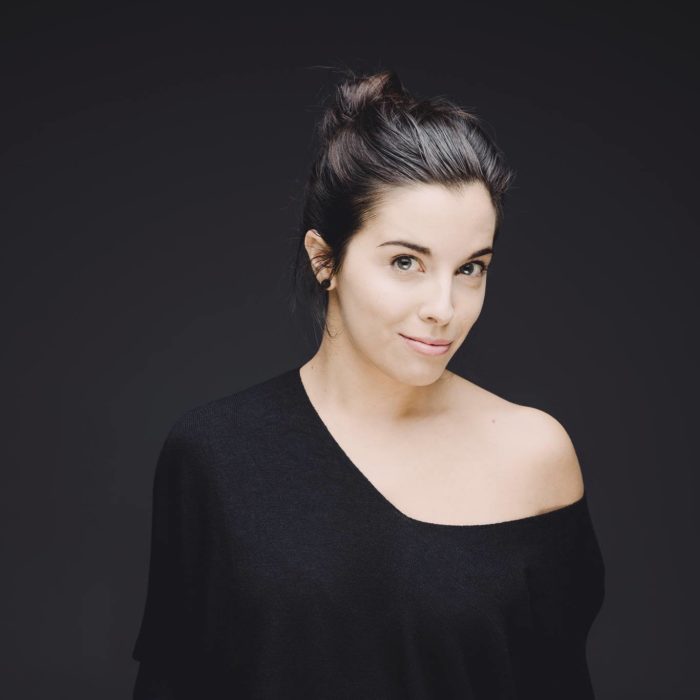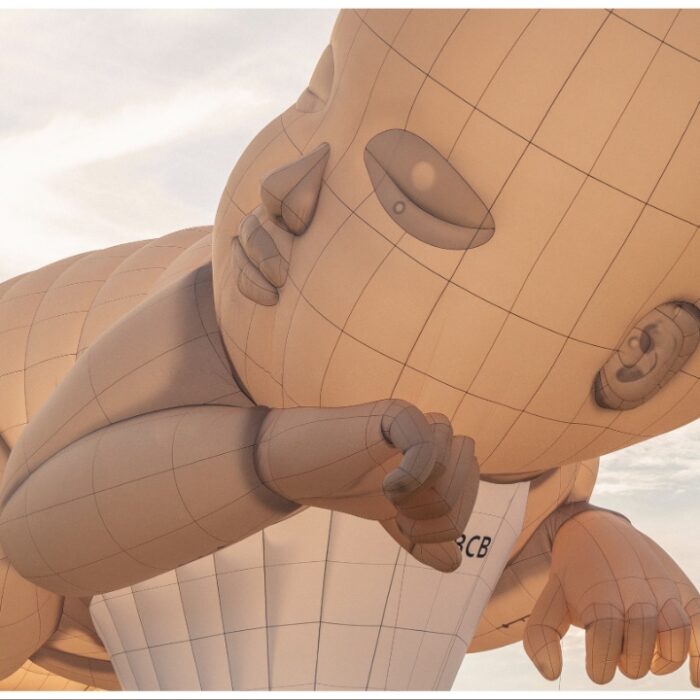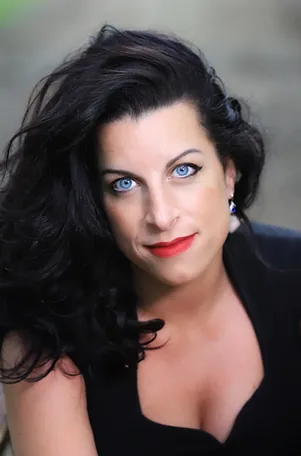
Q & A: Tiara Abraham on the Joy & Hardships of Earning Her Master of Music Degree at 18
By Afton Wooten(Photo credit: Tiara Abraham)
The 18-year-old soprano Tiara Abraham made history on May 3, 2024 as the youngest person to earn a master’s degree from Indiana University, across all campuses.
Abraham’s brilliance does not start there, nor will it stop. At 4-years-old, she became a Mensa, started community college when most people her age were in elementary school, and received her high school diploma at 13, and at 16 graduated summa cum laude at the University of California, Davis with a Bachelor of Arts in Music. During this time she was also studying classical voice and honing her technical skills. Both her natural talent and concentrated musical study lead Abraham to making her debut as Zerlina in Italy at 16.
Abraham graciously shared the details of her unique story and hopes for the future with OperaWire.
OperaWire: How did you discover your interest in opera?
Tiara Abraham: Around 9-years-old, I saw my first opera during a mother-daughter movie date at our local theater, watching the Met’s screening of “La Traviata.” Although my inborn talent of classical singing started at a very young age, it was at this screening that ignited my love for opera with its grandeur of the sets, the enchantment of costumes and allure of classical music! The same year, a college assignment led me to a concert by the esteemed soprano Renee Fleming. Witnessing her performance inspired me to become a distinguished classical singer on a global stage. Despite being an ambitious goal for a 9-year-old girl, it’s a dream I’ve pursued ever since. And 9 years later, I am working my way towards that dream!
OW: How do academics and the arts go together, and is it important?
TA: During my application process for the DMA, a degree that involves both research and performance, I have had the opportunity to reflect on this relation between the academics and arts. As performing artists, we often neglect the research aspect, or the creation and process behind the genesis of a work or background of an artist. I believe that an excellent artist must develop the ability to think critically and research. One should also meld the analytical aspect of academia with the creativity and personal voice as an artist to bring a unique perspective on a work. Or in other words, we apply scholarship to the arts.
As a performer, I think it is important that we have something new to say or add to the performance and spark discussion. One’s scholarly goals can even reflect their ideas and views of life, as they are dedicated to highlighting a topic or idea important or meaningful to them. Personally, I am interested in promoting diversity and inclusion, which is reflected in my work as an artist, in my programming and program notes. I think this is one of the ways we can go beyond just being a performer, and becoming a well-rounded musician. We must allow ourselves to embrace the intellectual side as a scholar and creative side as a performer.
OW: In your own words, how is opera academic?
TA: When performing in an opera, role preparation inherently is academic. Aside from perfecting one’s vocal technique, one must focus on character analysis and interpretation, which certainly involves a great deal of research. It is especially important when the opera is based on a
previous work. How does the composer and librettist change the characters and/or the plot? Why did they change certain elements? What are the character’s relations to other characters? These are all questions that can only be answered through one’s own research, critical thinking, and curiosity in one’s role preparation.
I took a Mozart Opera course during my first year of masters, and I learned so much that was applicable as a performer. Many of his operas, such as “Le Nozze di Figaro” and “Don Giovanni,” provide commentaries on the social hierarchies and cultural norms of the 18th century, and it’s so interesting to see the relationship between the libretto and the music, and how Mozart plays upon certain conventions to make something extraordinary.
OW: Do you have a dream role?
TA: I have a few dream roles that I would love to perform in the future. My dream roles are Adele, Lakme, and Marie (“La Fille du Régiment”). I know that Adele would be such a fun role to perform, and I always enjoy performing “Mein Herr Marquis.” It’s one of my favorite arias! Aside
from the oriental aspects, I think Lakme would be another beautiful and challenging role with her upper coloratura. I’ve written an essay on Delibes’ use of coloratura for Lakme, and enjoyed analyzing her vocal part and role in the opera. Her melismas are truly divine. And finally, Marie
would be an exciting role to perform! I love that she’s so energetic and comedic! I enjoyed watching the Met’s screening of the opera with Natalie Dessay as Marie at the theater with my mom when I was nine. It was my second opera.
OW: Tell me about your debut as Zerlina in Italy.
TA: I was 17 years old when I debuted my full operatic role. I performed Zerlina from “Don Giovanni” that was performed in the Florence region of Italy. I auditioned for the summer training program with Greve Opera Academy. Though it was a 3-week very intense training program, I enjoyed
the coaching and working with the rest of the opera cast, orchestra and faculty. Due to the long and hot summer days in Italy, the opera performances were held outdoors in the piazza around 9pm at dusk when it became cooler. Most old Italian opera houses are not air-conditioned, so they have outdoor performances in the summer. Having always attended operas indoors, it was a unique experience performing an opera outdoors under the moonlight (and of course some stage lighting). Since “Don Giovanni” is a long opera, we finished past midnight and it was a long night (and day) for us! I think Zerlina was the perfect first role for me. It suits my voice well and I learned so much throughout the process. I got to perform two beautiful arias along with some exciting duets and ensemble numbers! This summer, I am looking forward to performing Belinda in Purcell’s “Dido and Aenaes” for the Chicago Summer Opera.
OW: Have you experienced negativity because of your age? If so, how do you handle it?
TA: During my academic journey, I faced challenges with my young age. Some classmates were initially intimidated knowing that a young child was taking college classes with them. But most classmates were amazed and surprised that I was their college mate. And for most, having a 10-year-old or a 12-year-old wasn’t an issue. At community college, I fondly remember one of my college experiences. As a 9-year-old girl, being short and wanting to see the white board, I would always sit in front of the class. For an Italian college course, one of my classmates, Ed, who sat next to me was the oldest classmate, in his late 70s. For class activities and discussions, we would be together and our classmates were surprised that we both ended up being the top students of the class! We have a common like – classical music and opera. We still keep in touch with each other and sometimes Ed attends my recitals and concerts (via online).
Over the years, in my musical journey, I have certainly experienced negativity due to my young age. Starting out as a 7-year-old, finding a voice teacher was a challenge for my parents. Even now, there are times where I have felt discriminated against just for being an 18-year-old trying to make an impact with my voice in the classical music field. There have been several times where professionals in the field were initially dubious of my vocal talents due to my young age.
As a young classical singer, many immediately associate me with the child “opera” singers that appear on international TV talent shows and do not take me seriously for my artistic training. Unlike most of these child “opera” singers who are not trained classically or who imitate other opera singers to impress others, I have had years of good and healthy classical voice training. Considering that I have been classically trained since I was 7-years-old, I quickly proved that I have healthy technique and potential. I have had wonderful and supportive teachers throughout my training, who have always encouraged me to explore my vocal strengths while being cautious. I am also cognizant of my vocal and musical strengths and take on repertoire that is suitable for my voice.
I also face certain challenges as a young trained classical singer at a collegiate level. As with any other singer, one important focus is finding maximum resonance through healthy technique. However, I often find myself at a disadvantage due to my young age and being the youngest in the group, when I compete in competitions against bigger and louder voices who may not necessarily have exceptional musicality or technique. It is interesting to hear some of these singers win competitions, which makes me wonder if all it takes to win is the sheer mass of the instrument. Unlike instrumental prodigies, such as piano and violin prodigies, young vocalists like myself have a harder time trying to prove our in-born exceptional talent due to the conventional norms in the classical vocal field.
Having said that, I do not mean to sound presumptuous. At the end of the day, I continue to believe in myself and know that this age bias will not last long as I grow older. With all of the issues that come with being young in the classical voice field, I have always persevered with my passion for music.
OW: What advice do you have for other musical prodigies?
TA: My advice is to embrace your passion for your musical talent and share it with the community. While you can easily get caught up in the practice and perfection of your performance skills, don’t forget to enjoy the music making. Also, don’t be too self-critical of yourself. This is something that I continue to work on myself, considering that I’m a perfectionist and my biggest critic. Finally, I think it’s important to be a well-rounded musician by expanding your knowledge and skills and getting out of your comfort zone. I enjoy singing different genres, composing, and learning new musical skills. Don’t pigeon-hole yourself into one aspect of music.
OW: What are your plans after graduating with your doctorate?
TA: After I graduate with my doctorate, I will continue to audition and sing for some of the top Young Artist Programs in the country. Eventually, as every opera singer’s dream, I would like to become a main stage artist at an established opera house, as well as perform concerts, where I get to create meaningful programs to connect with audiences. Later down the line, I would also like to have my own private studio and teach voice at a university or conservatory setting. At the same time, I would like to not just limit myself to the classical world, but also embrace my love for jazz and bridge the two – jazzical.
At the end of the day, I always remind myself why I am pursuing this career. Vocal music, especially opera, is a special art form where artists collaborate to bring the community together to reflect on universal emotional and cultural experiences. Singing has always brought me immense joy, both personally and in the profound impact it has on my audiences. Witnessing the joyful tears in the eyes of elderly residents at assisted living facilities when I perform is a poignant reminder of the emotional impact of my singing. This profound reaction to my singing is humbling and fuels my aspiration to share this joy with larger audiences as a classical and opera singer.


